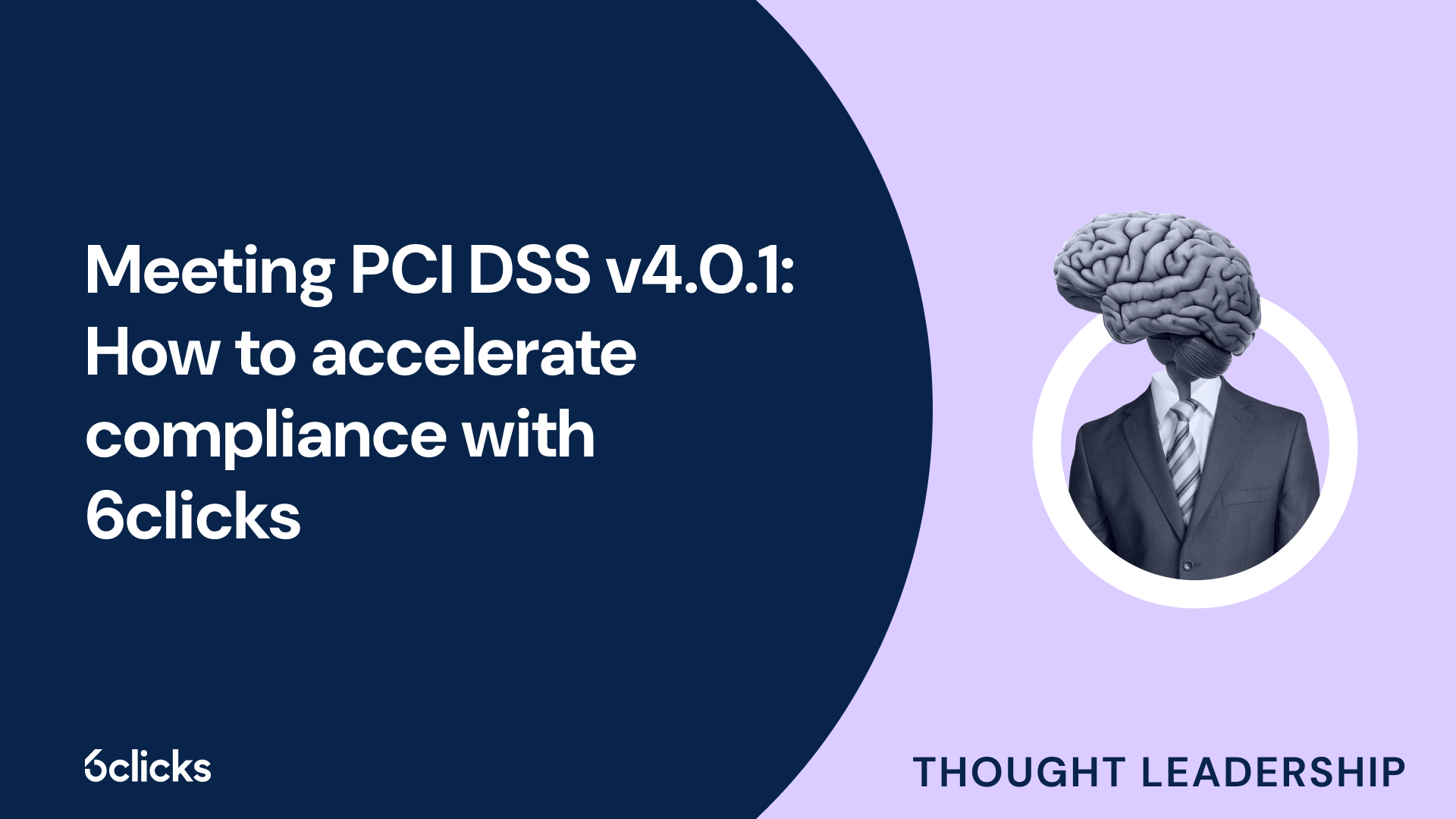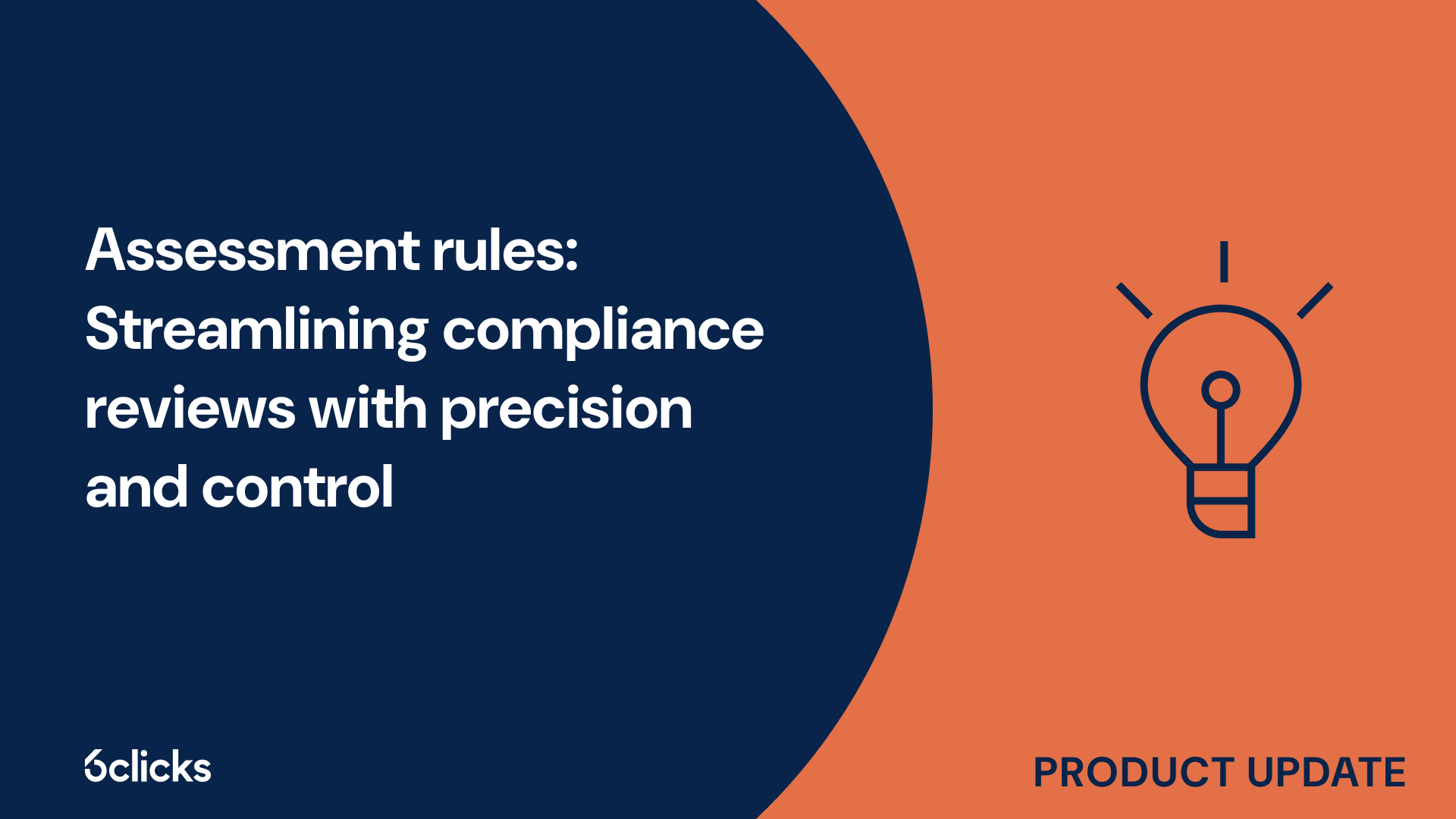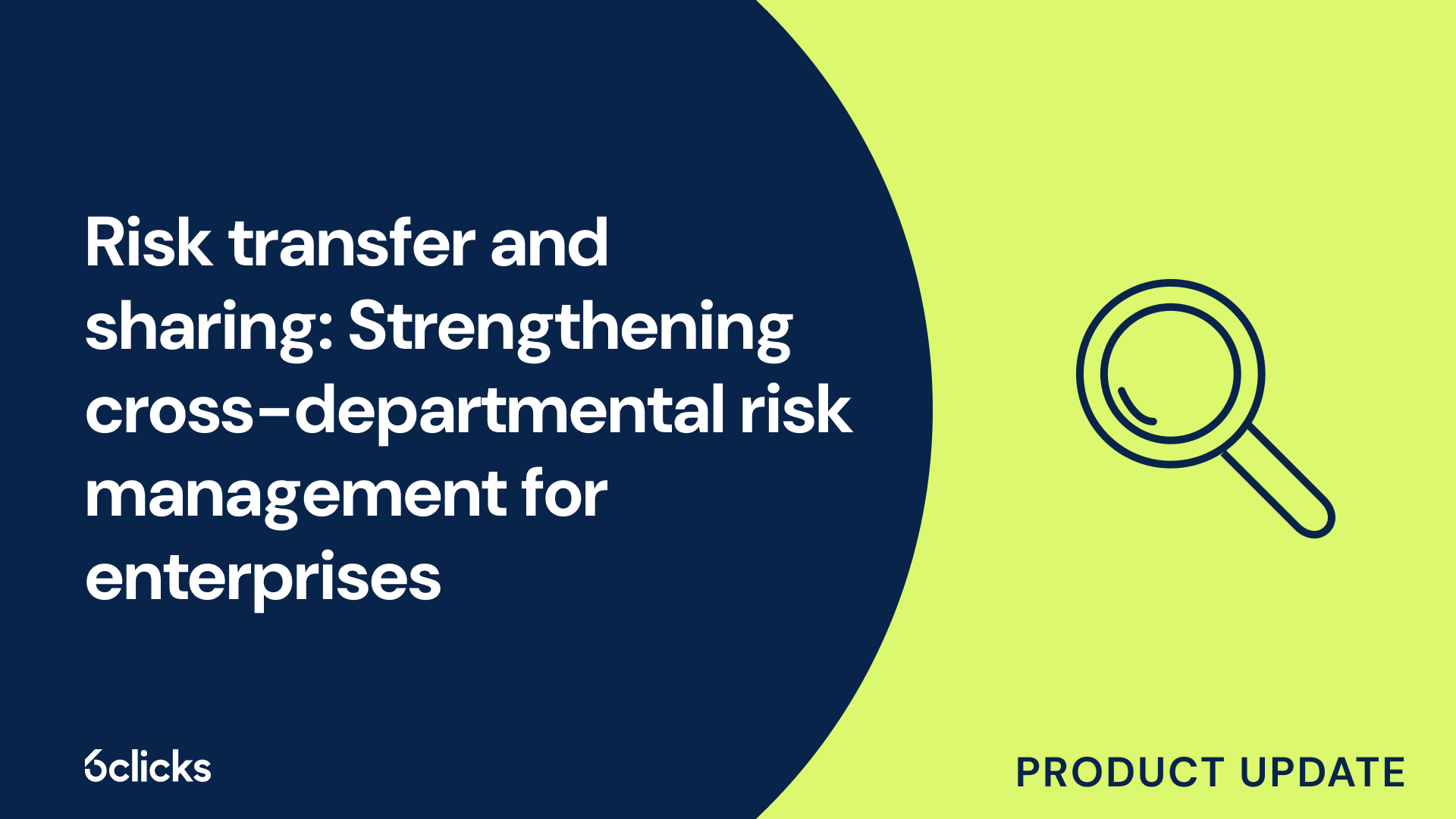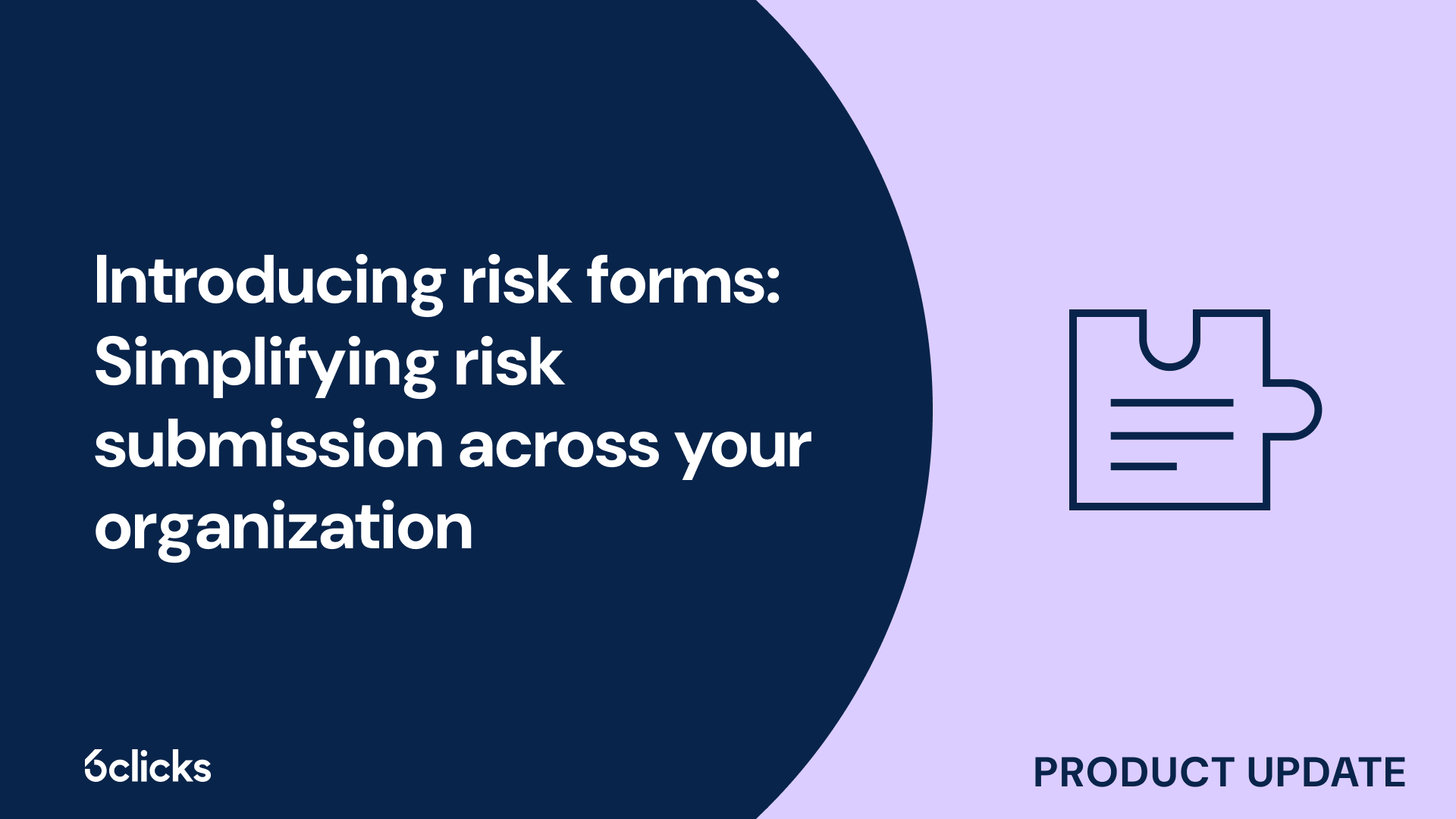The GRC buyer’s guide for 2025: Building resilience with AI-powered, federated solutions
Discover the ultimate GRC buyer's guide for 2025! Uncover how AI-powered, federated solutions transform compliance and security management for industries like government, aerospace, banking, and more. Learn about centralized control, continuous compliance, and advanced cyber GRC capabilities. Download now!
-1.png?width=200&height=249&name=Group%20193%20(1)-1.png)
The GRC buyer’s guide for 2025: Building resilience with AI-powered, federated solutions
What is the GDPR?
The General Data Protection Regulation (GDPR) is a comprehensive data protection legislation that was introduced by the European Union (EU) in 2018. It is designed to provide individuals with greater control over their personal data and to harmonize data protection laws across EU member states. The GDPR applies to both natural persons (individuals) and legal persons (organizations) that process personal data. It sets out various rights and obligations, such as the requirement for organizations to obtain consent before collecting and processing personal data, the right for individuals to access and rectify their data, and the obligation for organizations to implement appropriate security measures to protect data. The GDPR is primarily civil in nature, with provisions allowing individuals to enforce their rights through civil court proceedings. However, there are also certain criminal offenses related to data protection under the GDPR, such as intentional unlawful processing of personal data or failure to comply with orders from a supervisory authority. Overall, the GDPR seeks to strike a balance between protecting individuals' personal data and enabling the free flow of information in the digital economy.
Is GDPR civil or criminal?
GDPR, the General Data Protection Regulation, is primarily a civil law rather than a criminal law. It focuses on the processing of personal data and establishes the legal basis for data protection at a European level. While GDPR sets out rules and principles that organizations must adhere to when processing personal data, it does not impose criminal penalties for non-compliance.
Under GDPR, national laws within the European Union may introduce criminal sanctions for specific breaches of data protection provisions, but these penalties are not inherent to the regulation itself. The enforcement of GDPR is mainly conducted through regulatory measures, such as fines or remedies, rather than through criminal prosecution.
It's important to note that GDPR seeks to protect individuals' fundamental rights and freedoms in relation to their personal data, but it does not aim to criminalize all violations. However, it does provide authorities with the power to impose significant fines and take other civil measures to ensure compliance with data protection obligations.
Overview of the GDPR
The General Data Protection Regulation (GDPR) is a comprehensive data protection legislation enacted by the European Union (EU) to safeguard the privacy and personal information of individuals within the EU. It applies to both natural persons, such as individuals, and legal persons, including organizations, that process personal data. The GDPR establishes a legal framework for the collection, processing, and storage of personal data, with the goal of ensuring that individuals have control over their own information and are protected from potential harm caused by its misuse. The regulation not only provides guidelines for organizations on how to handle personal data but also grants individuals several rights, including the right to access their data, the right to rectify inaccurate information, and the right to be forgotten. Additionally, the GDPR introduces various obligations for organizations, such as the requirement to implement appropriate security measures and the obligation to report data breaches to relevant authorities. Non-compliance with the GDPR can lead to significant fines and other civil measures to ensure compliance with data protection obligations.
Scope and application of the GDPR
The General Data Protection Regulation (GDPR) is a comprehensive set of guidelines that governs the collection, storage, and processing of personal information of individuals within the European Union (EU). It applies to all companies and organizations that handle personal data of EU citizens, regardless of their location.
The GDPR sets strict requirements for organizations in terms of obtaining consent, implementing security measures, and ensuring transparency in data processing activities. It mandates that companies must have a lawful basis for collecting personal data and must inform individuals about the purpose and scope of data processing.
The GDPR also grants individuals several rights, such as the right to access, correct, and erase their personal data. It also imposes obligations on organizations to conduct data protection impact assessments, appoint data protection officers, and notify authorities in the event of data breaches.
Importantly, the GDPR not only applies to European organizations processing data of EU individuals but also to organizations outside the EU that target individuals within the EU. This ensures that individuals' personal data is protected regardless of where the organization is located.
Rights and obligations under the GDPR
Under the General Data Protection Regulation (GDPR), companies and organizations are obligated to adhere to specific rights and obligations when it comes to handling personal data. These requirements ensure the protection and privacy of individuals' information.
The GDPR establishes strict guidelines for collecting, storing, and managing personal data. Organizations must have a legal basis for processing personal data and must inform individuals about the purpose and scope of their data processing activities. Consent for data processing must be obtained in a clear and unambiguous manner.
Moreover, the GDPR grants individuals several rights regarding their personal data. These rights include the ability to access, correct, and erase their information. Individuals also have the right to restrict or object to the processing of their personal data in certain circumstances.
Importantly, the GDPR applies not only to European organizations processing personal data of individuals within the EU, but also to organizations located outside the EU that target individuals residing in the EU. This ensures that individuals' personal data is protected regardless of the organization's location.
By enforcing these rights and obligations, the GDPR aims to safeguard individuals' privacy and establish a transparent and accountable framework for the processing of personal data. Organizations must comply with these regulations to maintain the trust and confidence of their customers and clients.
Sanctions under the GDPR
Under the GDPR, organizations can face significant sanctions for non-compliance with the data protection regulations. These sanctions aim to ensure that organizations take data protection seriously and prioritize the privacy rights of individuals.
The criteria authorities consider when assessing fines and penalties include intentional infringement, failure to mitigate damage, and lack of collaboration with authorities. If an organization intentionally violates the GDPR or fails to take measures to prevent data breaches or minimize their impact, they may face more severe penalties. Additionally, if an organization fails to cooperate with authorities during investigations or fails to provide required information, this can result in escalated sanctions.
The severity of the violation determines the level of fines that can be imposed. For severe violations, organizations can face fines of up to 20 million euros or 4% of their global turnover, whichever is higher. These severe violations may include large-scale data breaches or systematic violations of individuals' rights. For less severe violations, organizations may face fines of up to 10 million euros or 2% of their global turnover, whichever is higher.
It is essential for organizations to understand and comply with the GDPR's provisions to avoid financial penalties and reputational damage. By prioritizing data protection measures and demonstrating a commitment to privacy, organizations can mitigate the risk of facing severe sanctions under the GDPR.
Enforcement of the GDPR
The enforcement of the GDPR is carried out by data protection authorities (DPAs) which are appointed in each European Union (EU) member state. These DPAs are responsible for ensuring compliance with the GDPR and have the power to investigate organizations, conduct audits, and impose penalties for violations.
The process of enforcing the GDPR begins with the DPAs receiving complaints or reports of potential violations. They can also initiate investigations on their own accord. When investigating a potential violation, the DPAs have the authority to request information and documentation from organizations, conduct interviews, and carry out on-site inspections.
To ensure compliance, DPAs may issue warnings or reprimands to organizations that have committed minor infractions. They can also order organizations to make changes to their data processing activities to comply with the GDPR. In more serious cases, DPAs have the power to impose fines and penalties.
The potential penalties for GDPR violations can be significant. For severe violations, organizations can face fines of up to 20 million euros or 4% of their global turnover, whichever is higher. Less severe violations can result in fines of up to 10 million euros or 2% of global turnover, whichever is higher.
Several fines and penalties have already been imposed under the GDPR. For example, British Airways was fined £20 million by the UK's Information Commissioner's Office (ICO) for a data breach that exposed the personal information of approximately 400,000 customers. In another case, H&M, the Swedish clothing retailer, was fined €35.3 million by the Hamburg Data Protection Authority for unlawfully monitoring employees' personal activities.
Criminal offences under the GDPR
Under the General Data Protection Regulation (GDPR), criminal offenses can occur when organizations fail to comply with the regulations and unlawfully handle personal data. The GDPR emphasizes the importance of protecting individuals' rights and privacy, and violations can result in severe penalties. This article will explore the implications of criminal offenses under the GDPR, including the legal consequences, potential fines, and real-world examples of organizations facing penalties for breaches of data protection laws.
General principles for establishing criminal offences under the GDPR
The General Data Protection Regulation (GDPR) primarily focuses on protecting personal data and ensuring the privacy rights of individuals. While the GDPR includes provisions regarding sanctions and penalties for violations, it does not itself establish specific criminal offences. The GDPR is primarily a civil law, imposing administrative fines and sanctions for non-compliance.
However, the GDPR does allow Member States to impose criminal penalties for certain violations of the regulation. Each Member State has the authority to determine whether the processing of criminal record information is lawful or not, as this may vary according to their local laws.
It is essential to recognize that the permissibility of conducting criminal record checks may differ from one country to another. Each Member State has the responsibility to enact their own laws and regulations to supplement and align with the GDPR. Organizations processing personal data in multiple countries need to consider applicable local laws, including any restrictions or requirements when conducting criminal record checks.
Examples of criminal offences under the GDPR
Under the General Data Protection Regulation (GDPR), certain violations can lead to criminal penalties. One such example is the case of Amazon Road Transport Spain, which was fined for breaching Article 10 of the GDPR. This provision prohibits the processing of personal data revealing criminal convictions or offenses, except when authorized by EU or national law.
In the case of Amazon Road Transport Spain, the company required candidates to provide a criminal record certificate during the hiring process. This requirement was considered a violation of Article 10 of the GDPR, as it involved the processing of sensitive personal data without a lawful basis.
Upon investigation, the Spanish Data Protection Authority (AEPD) found that Amazon's processing activities were not in compliance with the GDPR. The AEPD determined that Amazon had failed to establish a legal basis for requiring criminal record certificates and failed to conduct a proper assessment of the necessity and proportionality of the processing activity.
As a result, Amazon Road Transport Spain was fined for the offense, demonstrating that criminal penalties can be imposed under the GDPR. This case serves as a clear example of the consequences organizations may face for non-compliance with the regulation's provisions regarding personal data protection.
By understanding and adhering to the GDPR's provisions, organizations can avoid criminal offenses, protect individuals' privacy rights, and ensure compliance with the law.







